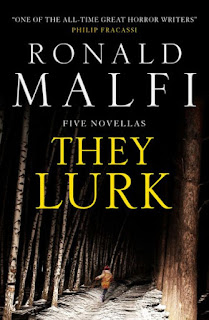 avid salt- and freshwater angler, a tennis player, kayaker and an accomplished cook. He lives in Ohio and Florida with his wife.
avid salt- and freshwater angler, a tennis player, kayaker and an accomplished cook. He lives in Ohio and Florida with his wife.
Sun, Sand, Murder, the first book in Keyse-Walker's Teddy Creque mystery series, won the Minotaur Books/Mystery Writers of America First Crime Novel Award. It was followed by Beach, Breeze, Bloodshed and Palms, Paradise, Poison. The newest Teddy Creque mystery is Reefs, Royals, Reckonings.
Recently I asked Keyse-Walker about what he was reading. His reply:
There always seem to be three books on my radar screen at any one time - one I have recently finished, one I am in the midst ofVisit John Keyse-Walker's website.and one waiting patiently on deck. Here they are:
Recently finished — Lonesome Dove by Larry McMurtry. I’d put off reading this masterpiece for years because of its daunting length (over 800 pages). That was a mistake. This is the quintessential Western Novel and should be on everyone’s reading list. Its exploration of the cowboy life is riveting, brutal, beautiful and almost poetic in quality. I decided to defeat the length by reading it in small bites when I was traveling on airplanes. It took over a year but it was a testament to the quality of the writing and the story that whenever the next flight came, I was able to pick the book up andbe immediately engaged again.
In the midst of — Beartown by Fredrik Backman. This book explores life in a small Scandinavian forest town obsessed with its junior hockey team but it could as easily be about a Texas town and high school football or an Indiana county and its boys basketball team. Backman has the small town feel down pat and then throws a violent act into the mix, disrupting lives and the hopes that the town had. Out of the disruption, though, new strengths emerge for some of the characters. This is supposed to be a book about a town and a game but it is really about people and how they react when turmoil visits.
On deck — The Wicked Pavilion by Dawn Powell. Dawn Powell was a friend of Ernest Hemingway, John Dos Passos and E.E. Cummings. I had not heard of her, despite the famous company she kept. She is known for her acid-toughed prose and sharp wit. Hemingway called her his favorite living American writer. The Wicked Pavilion in the book is the Cafe Julian, a place to see and be seen, fall into and out of love, cadge money and puncture the reputations of others, which if her contemporaries are to be believed, Powell does better than anybody. It sounds like wicked fun.
My Book, The Movie: Sun, Sand, Murder.
My Book, The Movie: Beach, Breeze, Bloodshed.
The Page 69 Test: Palms, Paradise, Poison.
Q&A with John Keyse-Walker.
The Page 69 Test: Bert and Mamie Take a Cruise.
--Marshal Zeringue



















